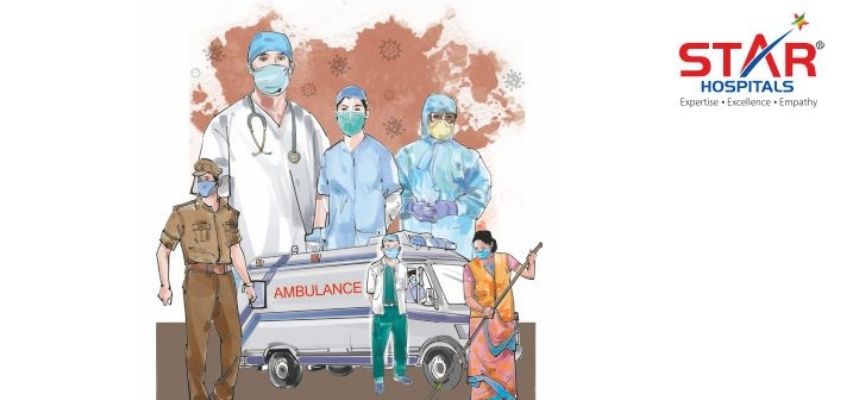RATIONALE USE OF ANTIBIOTICS

Undeniably, Antibiotics have saved millions of lives and have been a major factor in increasing human lifespan. They are indeed the life-saving drugs which have been there for decades to eliminate harmful disease-causing microbes from the system. Having said that, rational use of antibiotics is of utmost importance and everyone should be aware of consequences. It is imperative to use antibiotics only when they are needed & avoid them when they are not necessary says "Dr. T.N.J. Rajesh MD, MPH (USA) Consultant Physician Internal Medicine & Infectious Diseases Star Hospitals
.jpg) Inappropriate use of Antibiotics can result in developing drug resistant microbe strains. The more often you use an antibiotic, the more likely it is that bacteria will adapt and become resistant to it. As per studies, there are many reports that people tend to use Antibiotics for few common diseases which can be easily treated without using them. Acute Gastroenteritis, Acute Bronchitis, Asymptomatic Bacteriuria, seasonal Viral Infections are few common diseases for which it is not necessary to use Anti-biotics.
Inappropriate use of Antibiotics can result in developing drug resistant microbe strains. The more often you use an antibiotic, the more likely it is that bacteria will adapt and become resistant to it. As per studies, there are many reports that people tend to use Antibiotics for few common diseases which can be easily treated without using them. Acute Gastroenteritis, Acute Bronchitis, Asymptomatic Bacteriuria, seasonal Viral Infections are few common diseases for which it is not necessary to use Anti-biotics.
One of the most important things to remember is that it is very important to do relevant investigations even for the diseases, where the use of Antibiotic is inevitable. It is imperative that we collect an appropriate & adequate sample [blood, urine, sputum (for CSF)] and then start Antibiotics.
Once we identify an organism, it is very important to deescalate from broad spectrum to target specific antibiotics & use it for a specific duration of time. Furthermore, as per guidelines, we need to give antibiotic infusion over a period of 30 minutes to 3 hours depending upon the type of antibiotic.
WHO advocates following key interventions to promote more rational use of antibiotics,
- Establishment of a multidisciplinary national body to coordinate policies on medicine use
- Use of clinical guidelines
- Inclusion of problem-based pharmacotherapy training
- Supervision, audit and feedback
- Use of independent information on medicines
- Public education about medicines
- Use of appropriate and enforced regulation
These measures can help reduce the risk of developing resistance and ensures that you'll have the right medication. The consequences are not only a risk to the individual but may be a risk to the society as well. By following this approach, we will be able to cure patients & wipe out multi-drug resistant organisms from the body & thereby prevent the spread in the community.
Book Appointment: Dr. T.N.J. Rajesh MD, MPH (USA) Consultant Physician Internal Medicine & Infectious Diseases Star Hospitals

 Disclaimer: Welthi.com does not guarantee any specific results as a result of the procedures mentioned here, and the results may vary from person to person.
Disclaimer: Welthi.com does not guarantee any specific results as a result of the procedures mentioned here, and the results may vary from person to person.









